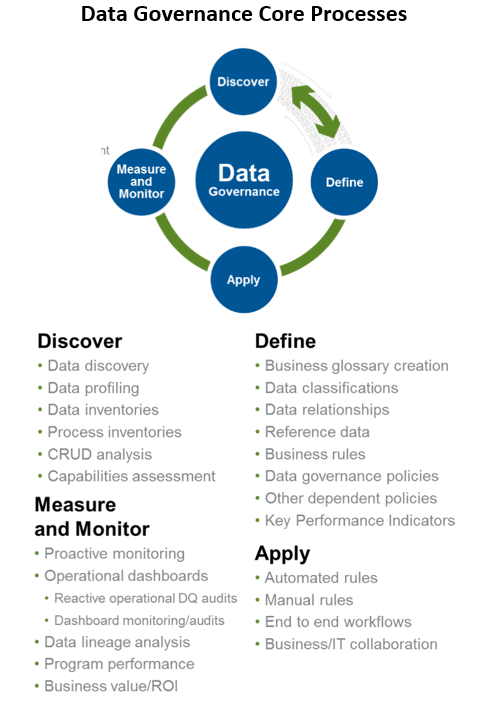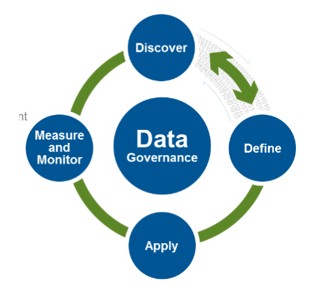Today, we’re featuring a guest blogger. Kimberly Miles is a seasoned IT Leader with 10+ years of specialized experience overseeing technical program and data product management, driving product vision, strategy, and innovation.
One of the obstacles to managing data is justifying why a data strategy is essential. For data-obsessed people like me, data governance is simply the right thing to do. But seriously, why is data governance important?
Data governance is defined as “an internal business function chartered with the creation of policies, processes, and standards to optimize the value data can deliver to an organization.”
The operating environment of today’s organizations demands timely, efficient and effective management information to facilitate the decision-making process. —Gregory F. Pashke
“Evaluative Criteria for Management Information Needs” CPA Journal, August 1978
Another way to relate to data governance is how organizations manage money. Would an organization leave their finances open for anyone to access? Of course not, an organization secures funds in accounts with trusted institutions. The same processes used to manage finances are the same processes used in data governance.

Data Governance processes applied to Money Management:
Discover: Organizations determine the sources of expenses and income. In discovery data is captured, a few examples are bank names, addresses, due dates, and account numbers.
Define: Federal government regulations and finance software define data standards so that money can be measured and reported consistently within an organization and organizations across the country.
Apply: Decisions on how rules and processes apply to finances. This step implements those processes for entering, updating, reconciling, synching with institutions, handling errors and exceptions, and reporting for budget and taxes.
Measure and monitor: Monitor budgets and spending. Measure investment performance.
When organizations mismanage their finances, they find themselves in trouble. Overdrawn Accounts, maxed out credit, and tax agencies or other regulators scrutinize records. Similar bad things can happen to organizations lacking data governance. Wasted time and money, trouble with regulators, negative customer experiences, and damage to their brand. Any of these scenarios can put the health of the organization at risk and distracts the organization from their mission.
References:
- The Data Warehouse Toolkit, 3rd Edition – by Ralph Kimball & Margy Ross
- http://en.wikipedia.org/wiki/Data_governance
- http://www.informatica.com/us/solutions/enterprise-data-integration-and-management/data-governance/
- http://blogs.informatica.com/perspectives/2012/10/15/the-process-stages-of-data-governance/
- http://amoghravish.blogspot.com/2014/02/need-for-data-governance.html
- https://blogs.informatica.com/2015/07/30/data-so-mom-can-understand/

Leave a comment